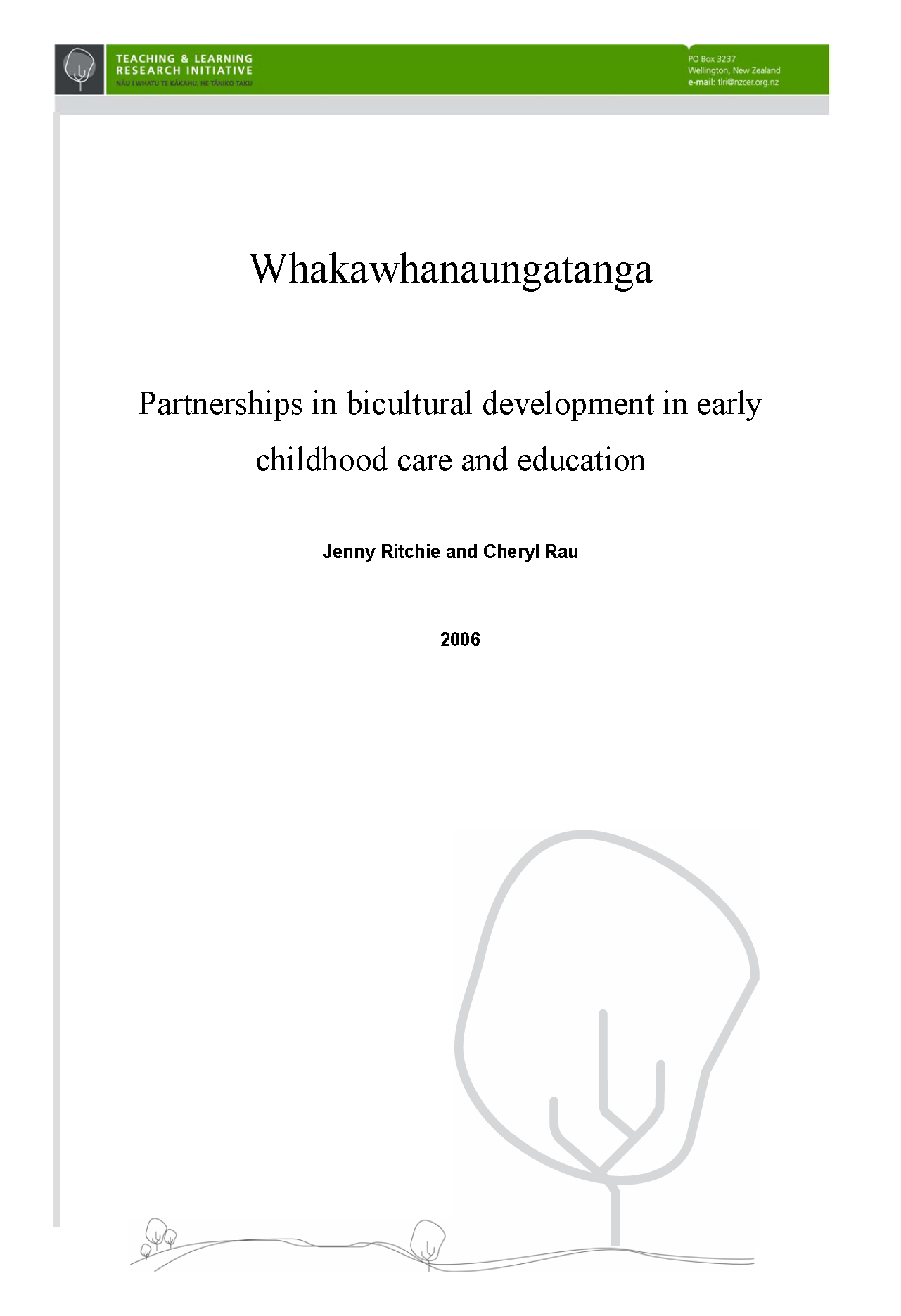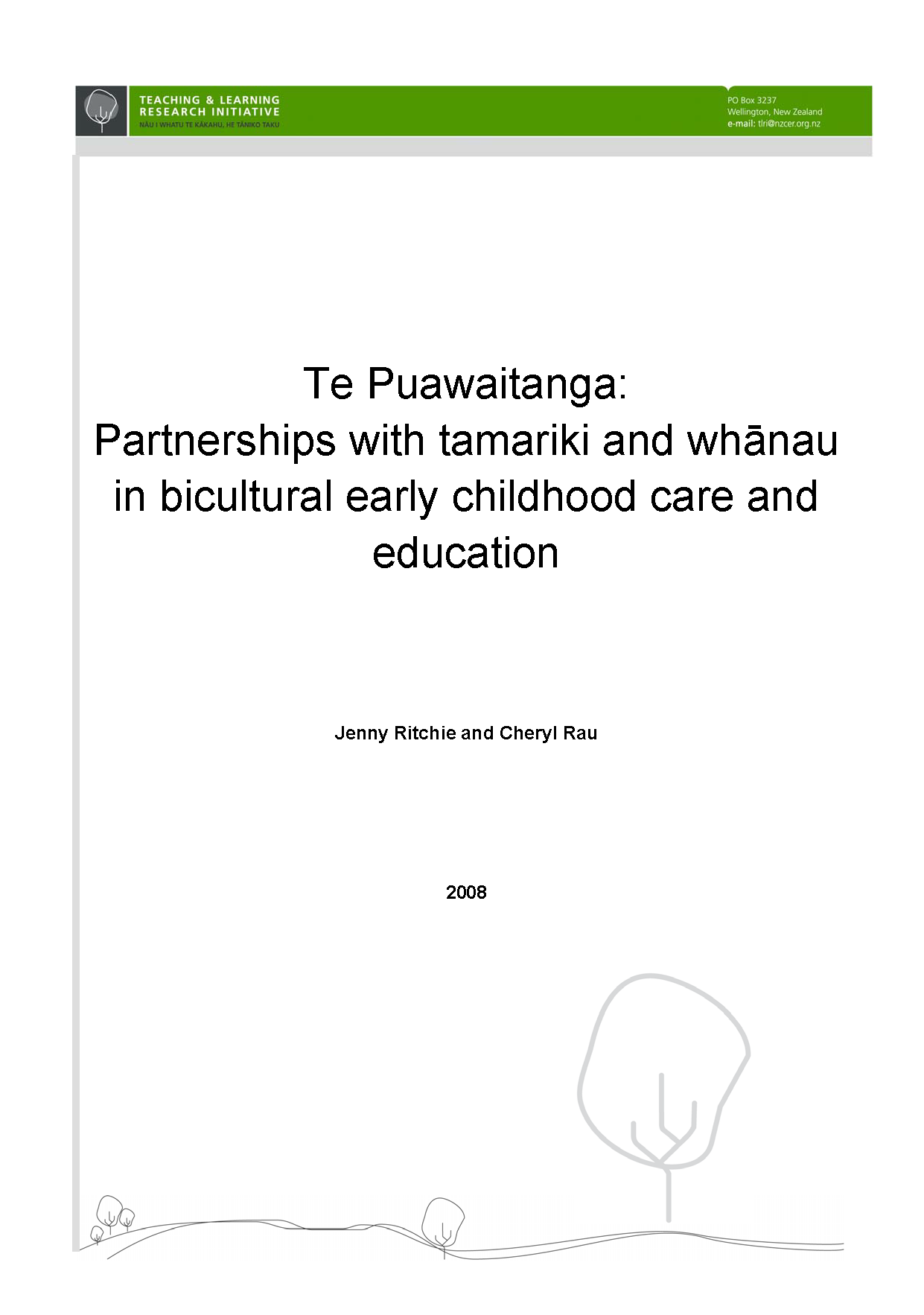
Whakawhanaungatanga: Partnerships in bicultural development in early childhood care and education
1. Aims, objectives, and research questions Introduction This project aimed to build on the theoretical and methodological foundations established in a doctoral research project recently completed by Jenny Ritchie (2002). The intention was to utilise collaborative partnerships between teacher educators, professional development providers, and early childhood educators, in order to identify effective strategies for building and strengthening relationships between early childhood educators and whänau/hapū/iwi Māori within early childhood care and education settings. The research was premised on findings of Ritchie (2002): that strengthening provision of the bicultural aspirations of the early childhood curriculum, Te Whāriki (Ministry of Education, 1996b), within mainstream early childhood education and care settings is a central professional


